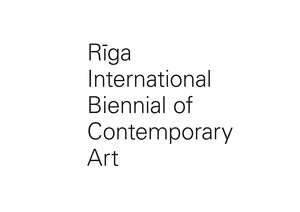Opening June 2018
Ausekļa street 2-2
Riga, LV-1010
Latvia
T +371 67 687 714
hello@rigabiennial.com
The Riga International Biennial of Contemporary Art (RIBOCA) is a new biennial with a European focus and a strong regional profile. Taking the rich history of Riga and the Baltic states as its underlying framework, the Biennial highlights the artistic landscape of the wider region and creates opportunities for artists to enter into dialogue with the cultural, historical and socio-political context of the city and its geographic surrounds. Considering criticisms of the proliferation of biennial culture, or “biennialisation” as it has been called, RIBOCA aims to create a sustainable model based on best practices that prioritise artists, artistic production and the meticulous presentation and mediation of art. The Biennial is based on a working process that starts from the local, expanding to the national and the regional, and finally to the transnational. The Biennial aims to take root and make roots in the place where it is situated. Reflecting the biennial’s mission to increase artistic engagement between the Baltic region and the rest of the world, it will include a significant proportion of artists from the area, a territory that still remains relatively unexplored despite its prolific artistic production. RIBOCA sees itself as a critical site of artistic experimentation and knowledge production, an activator of co-operation and exchange between local and regional actors and institutions, an instigator of generosity towards peers, and a barometer of current social, political and economic issues filtered through artistic practices. The first edition of the Biennial will open in summer 2018.
The Biennial has appointed Katerina Gregos as the Chief Curator of RIBOCA 2018. Gregos has extensive international curatorial experience having curated several critically acclaimed exhibitions and biennials including: the Belgian Pavilion at the 56th Venice Biennale, Personne et les autres: Vincent Meessen & Guests; the 5th Thessaloniki Biennial, Between the Pessimism of the Intellect and the Optimism of the Will (2015); The Politics of Play for the Göteborg International Biennial for Contemporary Art and Liquid Assets: In the Aftermath of the Transformation of Capital, Steirischer Herbst, Graz (2013); Newtopia: The State of Human Rights, various venues, Mechelen & Brussels (2012). In 2012 she was also on the curatorial team for Manifesta 9: In the Deep of the Modern, Genk. In 2011 she curated Speech Matters the acclaimed exhibition on freedom of speech for the Danish Pavilion at the 54th Venice Biennial, and co-curated The Eye is a Lonely Hunter, the 4th Fotofestival Mannheim Ludwighsafen Heidelberg. In 2009, she curated Contour: the 4th Biennial for Moving Image, Hidden in Remembrance is the Silent Memory of our Future. Among other things, Gregos also curated the 2006 edition of EVA International, Ireland’s Biennial of Contemporary Art, Give(a)way: On Generosity, Giving, Sharing and Social Exchange. This year she was also on the curatorial team for the project Uncertain States: Artistic Strategies in States of Emergency, Akademie der Kunst, Berlin. Forthcoming projects include: A World Not Ours, Kunsthalle Mulhouse; Summer of Love, for the Schwarz Foundation (2017) and The State is Not A Work of Art, for Tallinn Art Hall, Art Hall Gallery and Tallinn City Gallery (2018).
Riga International Biennial of Contemporary Art (RIBOCA) was founded as an initiative of the Riga Biennial Foundation, its commissioning body. The Founder and Director of the Riga Biennial Foundation, Agniya Mirgorodskaya developed RIBOCA in order to set up a new platform for international and Baltic artists, to promote contemporary art and provide educational and community support within the region, as well as to increase artistic engagement between the Baltic region and the rest of the world. Riga has been an important trading post since the Middle Ages, whilst in recent history Latvia has served as a significant industrial base. Latvia’s historical relations with Sweden, Russia, Poland and Germany have put it at the crossroads of different cultures and ideologies, with its gaze shifting between East and West. RIBOCA charts the particular psychogeography of this region within the new world order at a time of major global shifts.
International Press & PR: Pelham Communications
Florence Ritter, florence [at] pelhamcommunications.com, Alice Haguenauer alice [at] pelhamcommunications.com / T +44 20 8969 3959
Baltic region Press & PR:
Inese Dabola, inese [at] rigabiennial.com / T +371 291 47722


